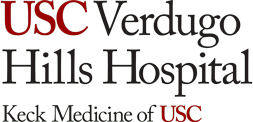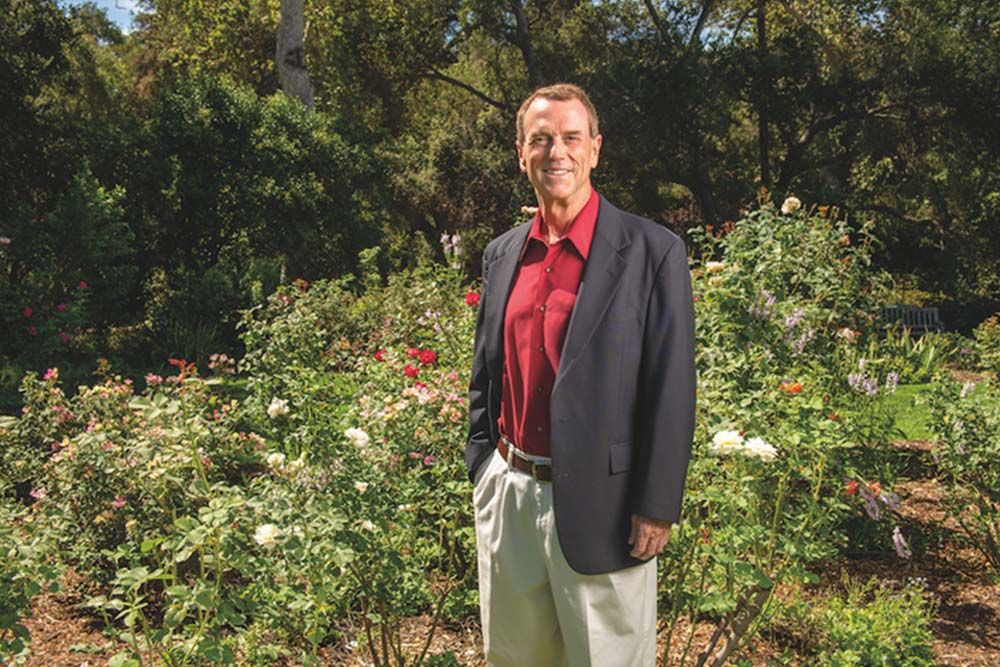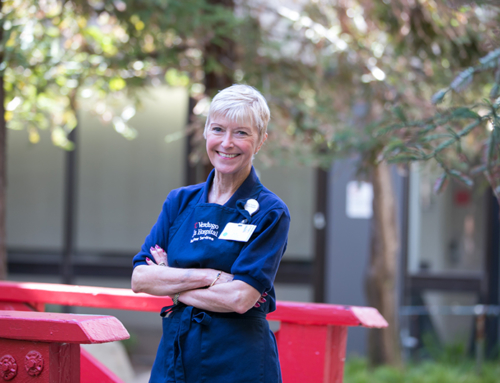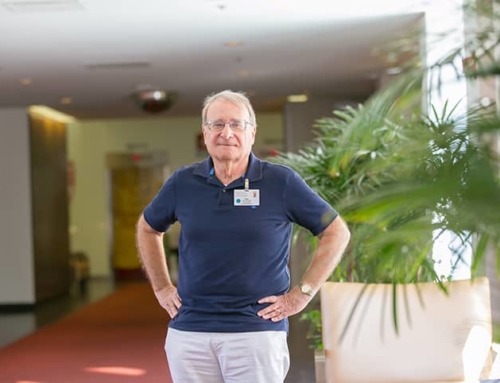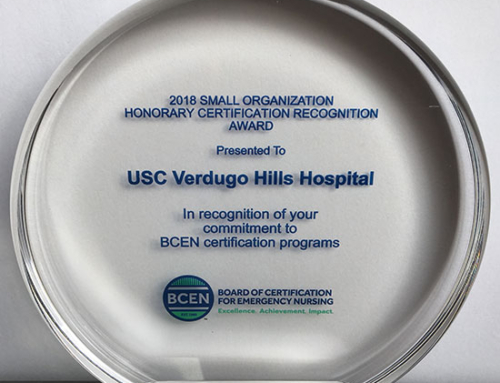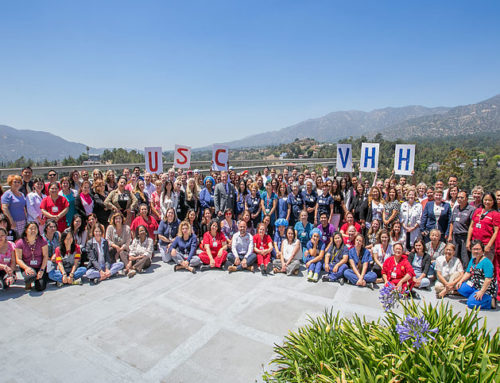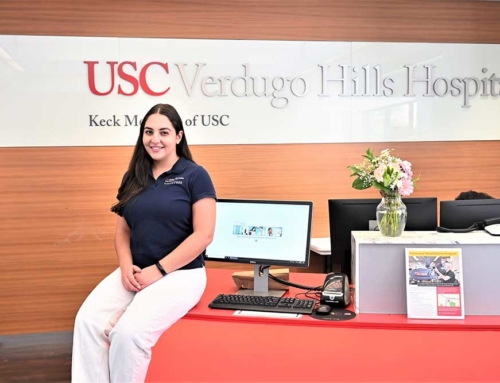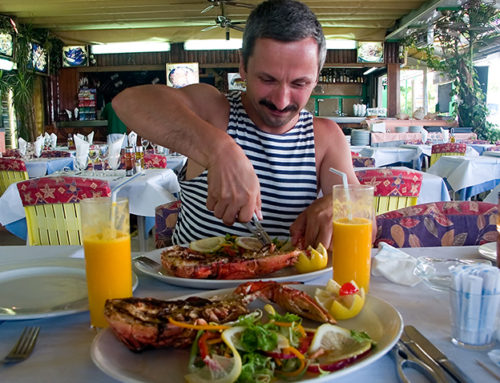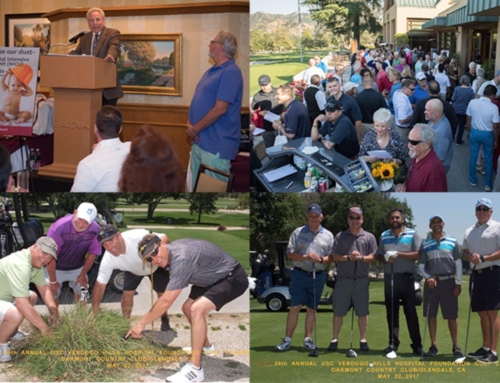Jonathan Curtis has a “type A” personality. So when he was hit with sudden, severe pain in his abdomen last October, he simply grabbed some antacids to settle his stomach and got back to work.
Instead of improving, the pain got worse. Within a few hours, Jonathan was wheeled into the emergency room at USC Verdugo Hills Hospital (USC-VHH), where blood work and a CT scan showed that he had necrotizing pancreatitis.
Pancreatitis occurs when the pancreas becomes inflamed and, while painful, it is usually resolved simply. Physicians administer fluids and pain medication and keep a watchful eye while the inflammation subsides. Unfortunately for Jonathan, his was an acute necrotizing case which can, and did, become life-threatening.
Jonathan, who serves on the La Cañada Flintridge City Council and is the city’s former mayor, was admitted to USC-VHH and was quickly transferred to the intensive care unit when his blood pressure dropped, his heart rate became irregular and he developed confusion — all signs that his pancreas was not stabilizing. He was evaluated by several of the hospital’s specialists who determined he needed a higher level of care within Keck Medicine of USC because the systemic inflammation was beginning to shut down his other organs. He was swiftly transferred via medical transport to Keck Hospital of USC’s Intensive Care Unit (ICU.)
“We have built a seamless system to provide the highest-quality care to our patients and their families,” says Keith Hobbs, MBA, chief executive officer of USC-VHH. He added that the doctors at USC-VHH and Keck Hospital can access records on incoming patients automatically. “Seamless information-sharing improves safety when we transfer patients to Keck Medical Center for life-saving specialty care and for those who return to USC-VHH.”
Too Sick for Surgery
Damon Clark, MD, assistant professor of clinical surgery at the Keck School of Medicine of USC, and associate medical director of the surgical intensive care unit at Keck Hospital explains that Jonathan’s pancreatitis led to multi-system organ dysfunction. “Part of his pancreas was dead, his kidneys were failing, he needed mechanical ventilation because his lungs were failing, his cardiovascular and nervous systems were compromised, too.”
Since gallstones can lead to pancreatitis, removing the gall bladder is a common intervention, but Jonathan was too sick to undergo surgery. They were able to put him on continuous renal replacement therapy to supplement his kidneys function, a life-saving treatment that is not widely available. He was also closely monitored by a large, multi-disciplinary group of doctors who intervened when complications, including a couple of incidents of atrial fibrillation, arose.
Connections Provide Support
Dr. Clark adds that while Jonathan was seriously ill, it became clear to the staff that he wasn’t the only one in need of care: His family was also suffering at his side. Jonathan’s wife Lisa and their daughters Melissa and Lauren connected gratefully with Reverend Phil Manley from Keck Medicine’s chaplaincy program, who offered prayers and emotional support throughout the 21-day ICU stay.
Lisa adds that the nurses in the ICU were generous with their time, talking her through her husband’s condition during many late-night phone calls. “As a nurse, I understood all of the complications that can arise from this and almost all of them did,” Lisa recalls.
The staff also arranged for one of their daughters, who was in graduate school at the time, to use an empty office where she could study and Skype into her classes so that she didn’t fall behind.
Above and Beyond
Though he is more careful about his diet now and may still need to have his gall bladder removed, Jonathan is back at work and looking forward to walking both of his daughters down the aisle next year at their weddings.
“I was fortunate to have a wonderful hospital for local care with the benefits of immediate access to a large medical and research institution with experts in every field. I am eternally grateful to the many doctors, nurses, therapists, ministers and other caregivers of Keck Medicine for their devotion and expertise. They saved my life, both physically and spiritually. This challenge has heightened my appreciation for every moment we have here on earth.”
By Hope Hamashige
